All Stories
-
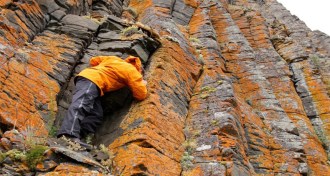 Earth
EarthVolcanic activity convicted in Permian extinction
Precision dating confirms that Siberian volcanic eruptions could have triggered the Permian extinction.
-
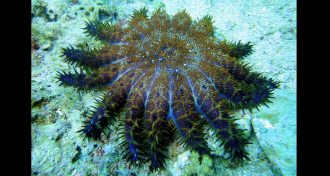 Animals
AnimalsCoral competitor becomes ally in fight against starfish
On the reef, algae compete with coral. But they may also protect coral from attacks by crown-of-thorns starfish, a new study finds.
-
 Quantum Physics
Quantum PhysicsNew experiment verifies quantum spookiness
A new experiment provides the most robust proof that quantum mechanics doesn’t follow the rules we take for granted in everyday life.
By Andrew Grant -
 Neuroscience
NeuroscienceThe need to feed and eating for pleasure are inextricably linked
Scientists used to think that the hunger and the pleasure from food could be easily distinguished. But new results show these systems are inextricably intertwined.
-
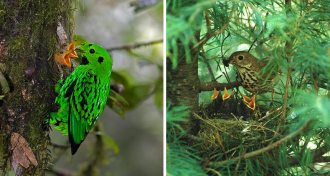 Animals
AnimalsTropical songbirds get their growth spurt late
Tropical songbirds are late bloomers, but that delayed development may give them an advantage after leaving the nest.
-
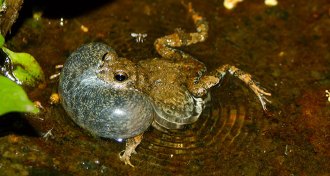 Animals
AnimalsDecoy switches frogs’ mating call preference
A female túngara frog may switch her choice between two prospective mates when presented with a third, least attractive option.
-
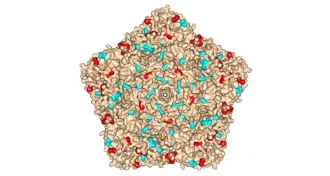 Health & Medicine
Health & MedicineVaccinated man excretes live poliovirus for nearly 3 decades
For almost 30 years, a man with an immune deficiency has been shedding poliovirus strains that have evolved from the version he received in a vaccine.
-
 Psychology
PsychologyPsychology results evaporate upon further review
Less than half of psychology findings get reproduced on second tries, a study finds.
By Bruce Bower -
 Animals
AnimalsTropical songbirds get their growth spurt late
Tropical songbirds are late bloomers, but that delayed development may give them an advantage after leaving the nest.
-
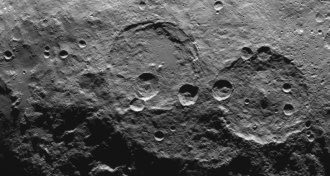 Planetary Science
Planetary ScienceMountains, craters revealed in latest images of dwarf planet Ceres
The Dawn spacecraft sent back postcards from Ceres that show off the dwarf planet’s varied terrain.
-
 Physics
PhysicsHawking proposes solution to black hole problem
Light sliding along the boundary of a black hole encodes everything that ever fell inside, suggests Stephen Hawking in a new but incomplete proposal.
By Andrew Grant -
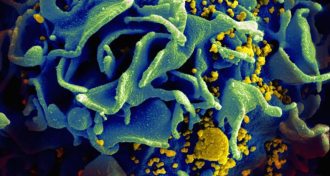 Health & Medicine
Health & MedicineEarlier is better for HIV treatment
People infected with HIV benefit from starting a drug regimen early, an international study finds.
By Nathan Seppa